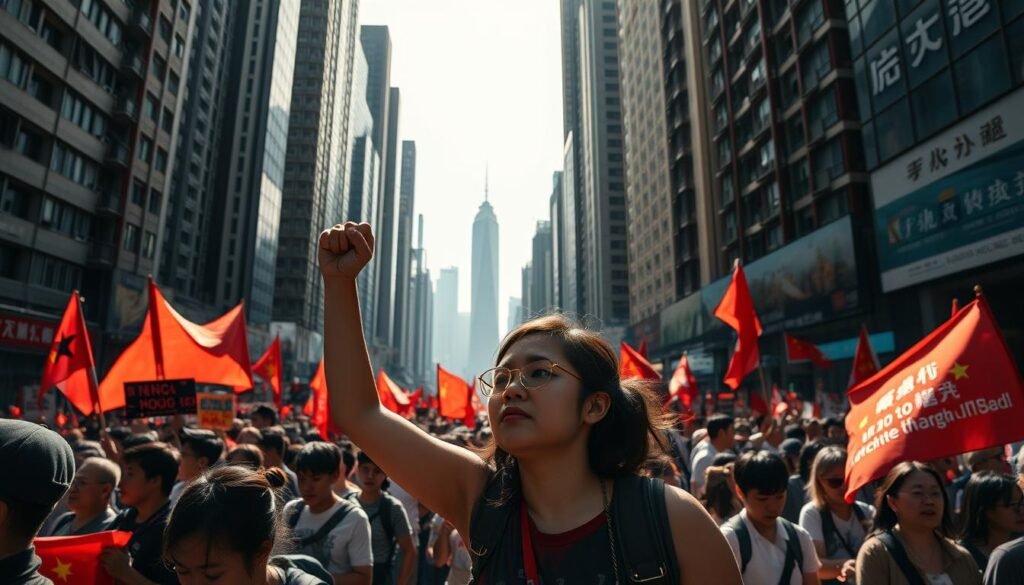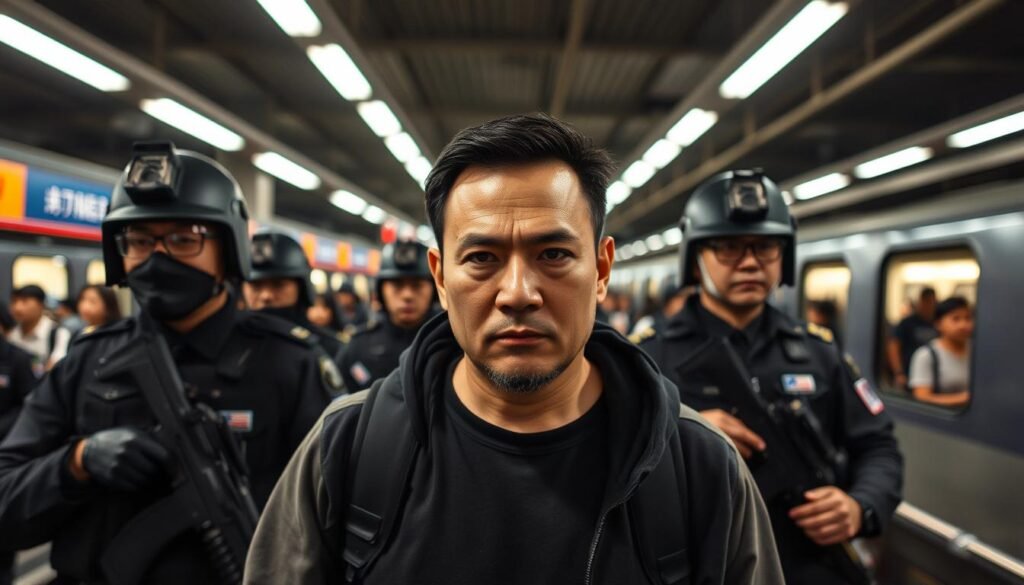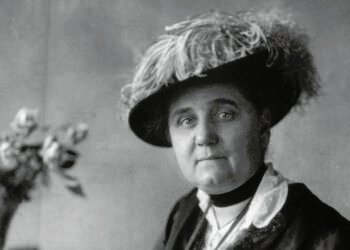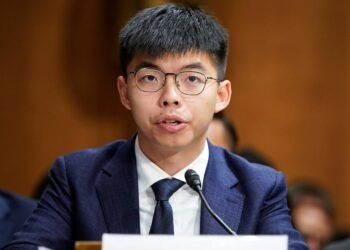What happens when a teenager’s fight for freedom becomes a defining battle for an entire city’s future?
This question lies at the heart of Agnes Chow’s remarkable story. At just 17, she stepped into the political spotlight during Hong Kong’s 2014 Umbrella Revolution.
She helped found Demosisto, a party pushing for democratic reforms. The group worked alongside other activists like Joshua Wong.
Their movement faced growing challenges under Beijing’s control. The national security law in 2020 forced Demosisto to dissolve.
Chow’s journey reflects Hong Kong’s broader struggle for democracy. Her life shows the tension between people’s aspirations and government security measures.
Key Takeaways
- Agnes Chow began her activism as a teenager during the 2014 protests
- She co-founded the pro-democracy party Demosisto that advocated for political reforms
- The movement operated under Hong Kong’s “one country, two systems” framework
- National security legislation implemented in 2020 significantly impacted activist groups
- Chow represents a generation of youth fighting for democratic principles
- Her story intersects with broader Hong Kong-China political dynamics
- The media has documented her journey from student protester to prominent activist
Early Activism and Democratic Advocacy
A young activist’s journey into politics often begins with a single moment of awakening. For many in Hong Kong, this moment came during the 2014 Umbrella Revolution.
Umbrella Revolution and Political Awakening
The 2014 protests marked a turning point for many young activists. They demonstrated against Beijing’s control over local elections.
Only government-approved candidates could run for office. This system limited democratic freedoms in the special administrative region.
Thousands occupied streets for months demanding change. The movement created a new generation of politically engaged youth.
Formation of Demosisto Party and Legislative Ambitions
In 2016, a new political force emerged with ambitious goals. The party addressed both social issues and democratic reforms.
It fought poverty and promoted equality across Hong Kong. The group also advocated for direct elections of the city’s leader.

One young activist became deputy general secretary of this movement. She worked to advance the party’s comprehensive platform.
Authorities blocked her 2018 legislative council bid. They claimed she wasn’t sufficiently patriotic despite supporting the constitution.
2019 Extradition Bill Protests and Police Headquarters Siege
2019 brought another major challenge to Hong Kong’s freedoms. A proposed law would send suspects to mainland China for trial.
Many feared this would undermine the city’s legal system. The situation sparked massive protests that lasted for months.
Hundreds of thousands participated in these demonstrations. They expressed concern about the potential loss of protections.
On June 12, 2019, protesters surrounded the police headquarters. They demonstrated against perceived police violence during earlier events.
One activist faced charges of inciting illegal assemblies. The public pressure eventually forced withdrawal of the controversial bill.
These early efforts shaped Hong Kong’s pro-democracy movement significantly. They demonstrated the power of organized public opposition.
Legal Challenges Under Hong Kong’s National Security Law
A new era of legal challenges emerged for democracy advocates under Hong Kong’s controversial security framework. The legislation created unprecedented hurdles for those advocating political reform.
Initial Imprisonment for Illegal Assembly
In December 2020, the activist received a 10-month prison sentence. This punishment addressed illegal assembly charges from the 2019 protests.
She served 6 months and 20 days at Tai Lam Centre for Women. This maximum security facility houses many political prisoners.
Rearrest Under National Security Law Allegations
August 2020 brought another legal confrontation. Authorities applied the new national security law provisions.
The young activist faced accusations of colluding with foreign forces. Specific charges involved social media activities labeled as hostile actions with foreign powers.
Bail Conditions and Travel Restrictions
Release came in 2021 under strict supervision. The bail package included multiple layers of control.
Regular check-ins with national security police became mandatory. Financial requirements totaled €30,000 between bail and personal guarantees.
Travel restrictions proved particularly limiting. Passport surrender and Hong Kong confinement created significant personal constraints.
The psychological impact of constant surveillance cannot be overstated. Living under legal threat changes how activists operate and communicate.
This case demonstrates how the national security law targets pro-democracy figures. The legal landscape has shifted dramatically under Beijing’s influence.
These developments reflect broader changes in Hong Kong’s judicial system. Many see them as tools to suppress democratic voices.
Forced Mainland Trip and Decision to Remain in Canada
In a dramatic escalation of pressure tactics, authorities orchestrated a mainland tour designed to reshape a prominent activist’s perspective. This unusual arrangement would ultimately lead to an irreversible decision about her future.
The “Propaganda Tour” and Psychological Pressure
August 2023 brought an unexpected development in the ongoing security case. National security police arranged what many described as a forced “propaganda tour” to mainland China.
The itinerary included patriotic exhibitions and a visit to Tencent headquarters. Many viewed these activities as reeducation efforts rather than voluntary tourism.
This unusual trip came with a specific exchange arrangement. Police returned her passport in exchange for participating in the mainland journey.

The mental health impact of constant surveillance had become overwhelming. Years of vigilance under security law provisions created immense psychological pressure.
Studying Abroad and Breaking Bail Conditions
The passport return enabled pursuit of educational opportunities abroad. She gained acceptance to a Canadian university through a rigorous application process.
Authorities required detailed course information and documentation. The young activist also had to write what some called a “repentance letter” regarding past activities.
She committed to returning to Hong Kong during academic breaks. This agreement formed part of the bail conditions for international study.
September 2023 marked her arrival in Toronto to begin studies. The environment offered different perspectives and breathing space from constant monitoring.
Social media became the platform for a life-changing announcement. Through Instagram, she declared she would not return to Hong Kong, effectively breaking bail conditions.
Hong Kong Government’s Response and Wanted Status
The declaration triggered an immediate and angry response from Hong Kong authorities. Chief Executive John Lee accused her of “complete deception” regarding her intentions.
He publicly characterized her actions as hypocritical and dishonest. The government viewed the broken commitment as a serious breach of trust.
Hong Kong police officially declared her a wanted person. Security forces vowed to pursue the case for life despite international boundaries.
This development represents a significant moment in Hong Kong’s political landscape. The decision to remain abroad and the strong official reaction highlight deepening tensions.
The case continues to draw international attention to Hong Kong’s security law implementation. It demonstrates the challenges facing activists operating under increasingly restrictive conditions.
Conclusion: Implications for Hong Kong’s Democracy Movement
Mainland-style political control tactics are now evident in Hong Kong’s approach to dissent. The national security law has resulted in 290 arrests, criminalizing previously peaceful activities.
Experts confirm the democracy movement has been largely suppressed. Many Hong Kongers now consider emigration due to the worsening political situation.
The Agnes Chow case draws international attention to these developments. It highlights the mental health toll on activists living under constant surveillance.
These changes challenge Hong Kong’s promised autonomy under the “one country, two systems” framework. The future remains uncertain for both domestic and abroad-based activists.
FAQ
What was Agnes Chow’s role in Hong Kong’s pro-democracy movement?
She was a prominent activist who co-founded the Demosisto party and participated in major protests, including the 2014 Umbrella Movement and 2019 demonstrations against the extradition bill.
Why was Agnes Chow imprisoned in Hong Kong?
She served time for organizing an unauthorized assembly during the 2019 protests and was later rearrested under the national security law for alleged collusion with foreign forces.
What restrictions did Agnes Chow face under her bail conditions?
Her bail terms included surrendering all passports, adhering to a curfew, and requiring police permission for any travel outside Hong Kong.
Why did Agnes Chow decide not to return to Hong Kong?
After a tightly controlled trip to mainland China that many viewed as propaganda, she broke bail conditions to study in Canada, citing fear for her safety and freedom if she returned.
How has the Hong Kong government responded to her staying abroad?
Authorities declared her a wanted person and issued a warrant for her arrest, warning she would face life in prison if convicted under the national security law.
What does her case signify for Hong Kong’s political situation?
Her experience highlights shrinking freedoms, intense pressure on activists, and the broad reach of the national security law in silencing dissent.





